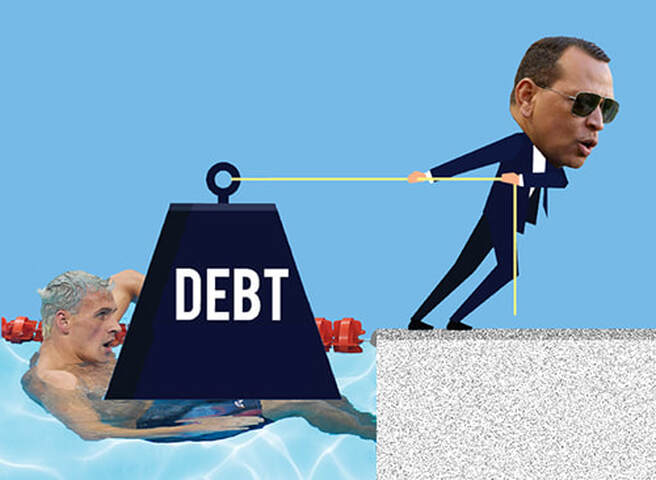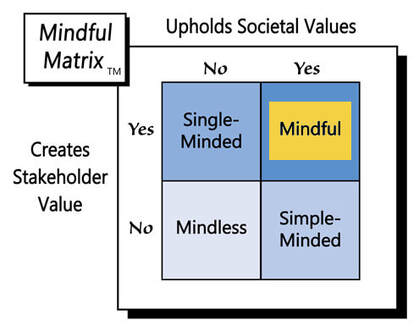Yes, there’s the long-term impact of knee surgeries and head trauma, but many former professional athletes also endure another kind of body-blow: a financial one. Now a reality TV show with an unlikely host hopes to pull past players out of their poverty.
The NFL’s new collective bargaining agreement (CBA) has proposed increasing the minimum player salary from $495,000 to $510,000. You may be thinking, “That’s a ton of money,” which it is. There are, though, other important circumstances to consider when playing careers end.
While there are the rare retired athletes who land very lucrative endorsement deals, like the $130 million Michael Jordan makes annually from Nike, and the $17 million-a-year broadcasting contract former NFL quarterback Tony Romo recently secured from CBS, most former athletes’ incomes fall off a cliff. Once retired, they command only a fraction of what they earned on the field or court, partly because elite athletic competition often comes at the expense of developing other marketable job skills.
It’s possible to blame some athletes for spending too much and not saving enough, but it’s also true that many enter professional sports in their early twenties or even in their teens, where they may encounter corrupt financial advisors and temptations to make bad business decisions, all during playing careers that often last just a few short years.
Unfortunately, there’s a growing list of former professional athletes, including long-tenured ones, who have found themselves in financial peril after their playing careers ended. Some on that luckless list include well-known former NFL players Bernie Kosar, Warren Sapp, Lawrence Taylor, and Vince Young. If these once high-equity athletes can lose most of their money, it’s easy to imagine how ones on the opposite end of the earning scale can end up insolvent.
So, who has stepped to the plate to help poor past pros? It’s someone I wouldn’t have expected: former MLB player Alex Rodriguez.
During his 22 seasons of major league baseball, twelve with the New York Yankees, “A-Rod” established himself as one of the greatest players of all time with stats such as a .295 batting average, 696 home runs, 25 grand slams, 3,000+ hits, 14 All-Star appearances, and three Most Valuable Player Awards.
However, despite all that success, and two Gold Glove Awards, Rodriguez made an epic error: To deal with chronic back pain and so he could “put up big numbers,” Rodriguez violated MLB policy and used steroids. That mistake caused the league to suspend him for the entire 2014 season, which Rodriguez says, “cost me my reputation, and it may have cost me the Hall of Fame.”
Now, fast forward to a few weeks ago: I’m watching television, and a show comes on CNBC called “Back in the Game,” starring . . . Alex Rodriguez. I remembered promos for the program describing its premise—Rodriguez helps former athletes and entertainers rebound from financial ruin. I’m about to change channels when I see who he’s helping this episode: Ryan Lochte.
If you’ve forgotten, Lochte is a very accomplished U.S. swimmer who won 12 Olympic Medals but infamously embarrassed the entire nation after the 2016 Summer Olympics with a drunken escapade that included vandalizing the bathroom of a gas station in Rio de Janeiro. To cover up the mess, he filed a false police report, claiming that he and three teammates were robbed at gunpoint.
Not being a big fan of Rodriguez or Lochte, I have two good reasons to change channels, yet something compels me to stay tuned—maybe the unseemly sense of an impending train-wreck.
Reality-TV-show-host is just one of Rodriguez’s post-retirement gigs. He’s also an announcer for EPSN’s Sunday Night baseball. Furthermore, he’s the founder and CEO A-Rod Corp, a firm that “identifies, originates and manages investments across a broad array of industries, including real estate, sports and wellness, media, and entertainment.” On the corporation’s website, Rodriguez tells how his desire to start the company came from an impoverished childhood in which his mother tirelessly worked multiple jobs to afford ever-increasing rent.
Now, with annual income of about $33 million and net worth over $350 million, Rodriguez has clearly broken the cycle of poverty and achieved financial freedom in his post-playing career. Several pictures on the A-Rod Corp website visually support that success, such as one of the former slugger sporting sunglasses and a stylish grey suit as he poses proudly in front of his private jet with the firm’s ‘baseball swing’ logo emblazoned on the tail.
During his playing career, some described Rodriguez as “moody” and “aloof” and even as “the most egocentric player in Major League Baseball.” Could someone who was and still seems caught up in his own success, truly care about the well-being of others? Despite such skepticism about Rodriguez and Lochte, I can’t look away from the reality show spectacle.
As slugger met swimmer, the former challenged the latter to make lifestyle changes that could help anyone facing financial peril. For instance, Rodriguez urged Lochte to reduce reoccurring expenses by replacing pricey monthly payments on two very posh cars with a single lease on a much more modest ride.
Rodriguez also helped Lochte identify new income earning approaches, including some personal brand-appropriate endorsement deals and several solid speaking engagements. However, these new PR opportunities seemed likely to sink Lochte, unless the swimmer could rise above one ostensibly unsurmountable obstacle: his ego. Given Rodriguez’s own epic fail and apparent self-absorption, how could he possibly coach Lochte free from such hubris?
As it turns out, Rodriguez had come to terms with his own rocky past, several years before. A 2017 ESPN article described how the former all-star genuinely owned his steroid error, tearfully admitting the hurt he had caused his wife, daughters, and others and accepting full responsibility for his “stupid” mistake.
In the Back in the Game episode, Rodriguez also recounted how he undertook another extremely difficult task—apologizing to his former teammates. Now the slugger was asking the swimmer to attempt the same formidable feat. At first Lochte balked, but eventually he picked up his phone and started making calls.
With just his first apology, Lochte’s countenance visibly changed. One could see how the normally brash competitor was visibly broken. One also could hear how those on the other side of the phone calls were moved by his genuine humility, as they accepted his heart-felt apologies.
As I watched both Rodriguez and Lochte realize redemption, my cynicism subsided. I gained new-found respect for these former athletes, and I was reminded of three things: even the mighty fail, everyone needs help in some way, and all people have the potential to change.
I haven’t yet watched other episodes of Back in the Game, and I’m not sure how many others have seen the show. It seems, though, that an interesting TV program that encourages personal responsibility and restored relationships can rise to the level of “Mindful Marketing.”
Learn more about the Mindful Matrix and Mindful Meter.
Check out Mindful Marketing Ads and Vote your Mind!




 RSS Feed
RSS Feed